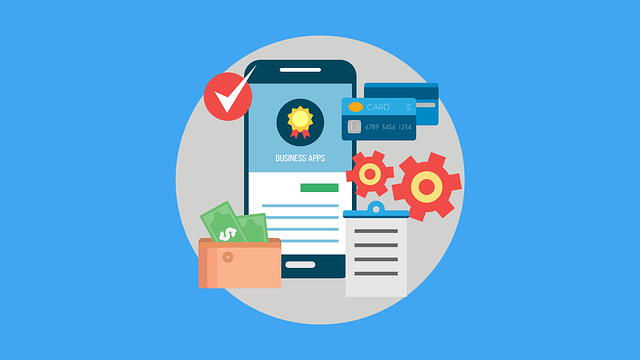Artificial Intelligence (AI) is transforming the trucking sector by enhancing truck repair processes through data-driven insights and personalized guidance. This article offers a comprehensive guide for truck repair shops aiming to implement AI coaching systems, covering assessment, tool selection, data collection, model training, testing, and employee integration. By leveraging AI, shops can streamline workflows, reduce errors, and boost performance, measured through KPIs like faster repair times, lower labor costs, and improved customer satisfaction. This ensures businesses stay competitive in the digital age of truck repairs.
In today’s competitive trucking industry, optimizing repair processes is key to boosting profitability. AI-powered strategies offer a game-changing approach to enhancing truck shop efficiency. This article delves into the transformative potential of Artificial Intelligence (AI) in revolutionizing truck repair. We explore how AI can streamline operations through intelligent coaching systems and data-driven insights. By implementing these cutting-edge techniques, truck shops can achieve significant improvements in productivity and overall efficiency.
- Understanding AI's Role in Optimizing Truck Repair Processes
- Implementing AI Coaching Systems: A Step-by-Step Guide
- Measuring Success: Evaluating AI's Impact on Truck Shop Efficiency
Understanding AI's Role in Optimizing Truck Repair Processes

Artificial Intelligence (AI) is transforming industries across the globe, and the trucking sector is no exception. By integrating AI into truck shops, businesses can unlock significant opportunities for optimizing repair processes and improving overall efficiency. One of the key roles of AI in this context is data analysis. Advanced algorithms can process vast amounts of vehicle diagnostic data, identifying patterns and anomalies that may indicate potential issues or areas for improvement in the repair process. This predictive capability enables technicians to proactively address problems, reducing unexpected breakdowns and enhancing customer satisfaction.
Furthermore, AI coaching systems can enhance the skills of truck repair professionals. These intelligent tools provide step-by-step guidance, offering personalized recommendations based on specific vehicle models and repair tasks. Such technology streamlines complex procedures, reduces human errors, and accelerates the learning curve for new technicians. By leveraging AI’s analytical and instructional capabilities, truck shops can achieve higher levels of precision, speed, and productivity in their operations.
Implementing AI Coaching Systems: A Step-by-Step Guide

Implementing AI Coaching Systems is a powerful strategy to enhance truck repair efficiency and overall shop performance. Here’s a step-by-step guide to get you started:
1. Assess Current Processes: Begin by thoroughly understanding your existing truck repair workflow. Identify inefficiencies, common mistakes, and areas where technology could significantly improve accuracy and speed. This step is crucial for tailoring an AI coaching system that addresses specific needs.
2. Choose the Right AI Tools: Select AI technologies designed for coaching and training purposes. These can include computer vision systems for diagnosing issues, natural language processing (NLP) chatbots for customer interaction, or predictive analytics to anticipate maintenance needs. Ensure these tools are compatible with your existing shop management software.
3. Data Collection and Preparation: Collect relevant repair data, including historical records, parts inventory, and employee performance metrics. Clean and organize this data to train the AI models effectively. The quality of data directly impacts the system’s accuracy, so invest time in ensuring it is comprehensive and accurate.
4. Train and Integrate AI Models: Train your chosen AI models using the prepared data. This involves feeding them with repair scenarios, diagnostic questions, and potential solutions. Once trained, integrate these models into your shop management system. For instance, an NLP chatbot can guide customers through initial troubleshooting, while a computer vision model assists technicians in identifying parts and diagnosing issues.
5. Pilot Testing: Launch a pilot program to test the AI coaching system under real-world conditions. Monitor its performance, gather feedback from employees, and make adjustments as needed. This iterative process ensures that the AI system evolves to meet your shop’s unique requirements.
6. Employee Training and Adoption: Educate your staff about the new AI tools and their benefits. Provide training sessions to ensure technicians can effectively interact with the system. Foster a culture of embracing technology, encouraging employees to offer feedback on how to further improve the AI coaching process.
Measuring Success: Evaluating AI's Impact on Truck Shop Efficiency

Measuring success is a critical aspect of understanding the impact of AI on truck shop operations. By implementing AI coaching, these shops can significantly enhance their efficiency in various areas. The key to evaluating its effectiveness lies in tracking key performance indicators (KPIs) such as reduced repair times, minimized labor costs, and improved customer satisfaction levels.
AI systems can provide valuable insights into the entire repair process, allowing managers to identify bottlenecks and make data-driven decisions. This real-time analysis enables them to optimize workforce allocation, ensuring that skilled technicians are deployed efficiently. As a result, AI coaching contributes to faster turnaround times, making truck shops more competitive in their industry.
AI has the potential to revolutionize truck shop operations by streamlining processes and enhancing efficiency. By implementing AI coaching systems, as outlined in this article, shops can improve diagnostic accuracy, reduce downtime, and optimize resource allocation. Measuring success involves tracking key performance indicators (KPIs) that reflect increased productivity, reduced costs, and improved customer satisfaction. Embracing AI-powered strategies is a game-changer for truck repair businesses seeking to stay competitive and meet the evolving demands of the industry.
